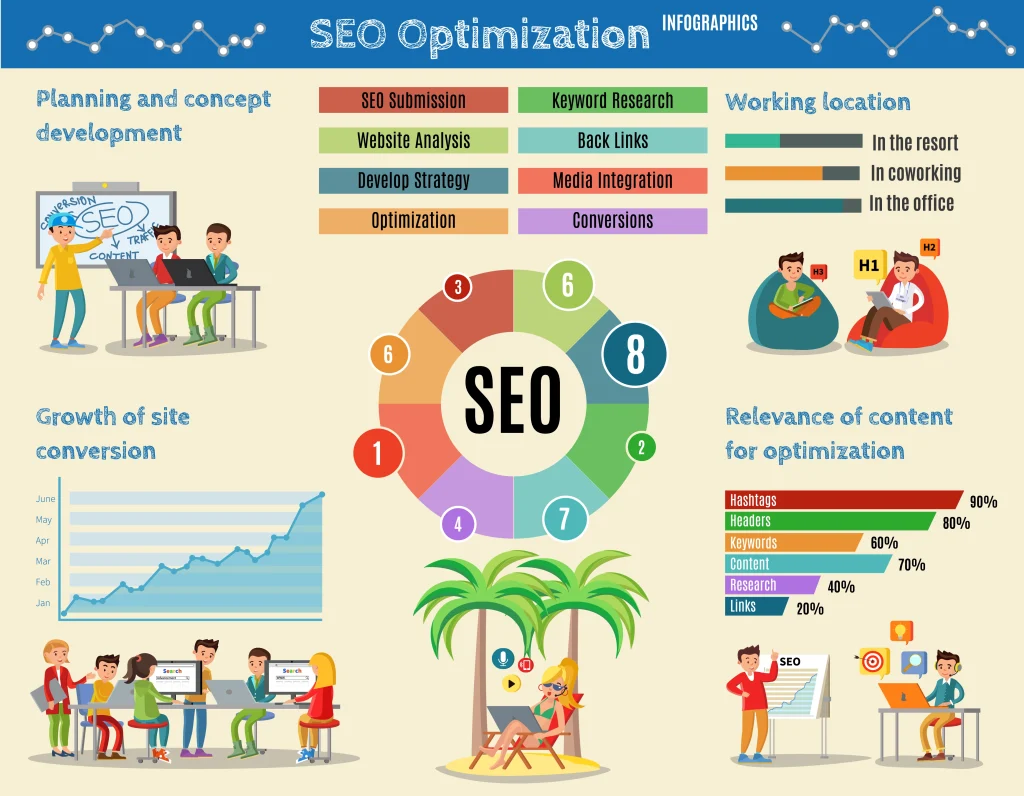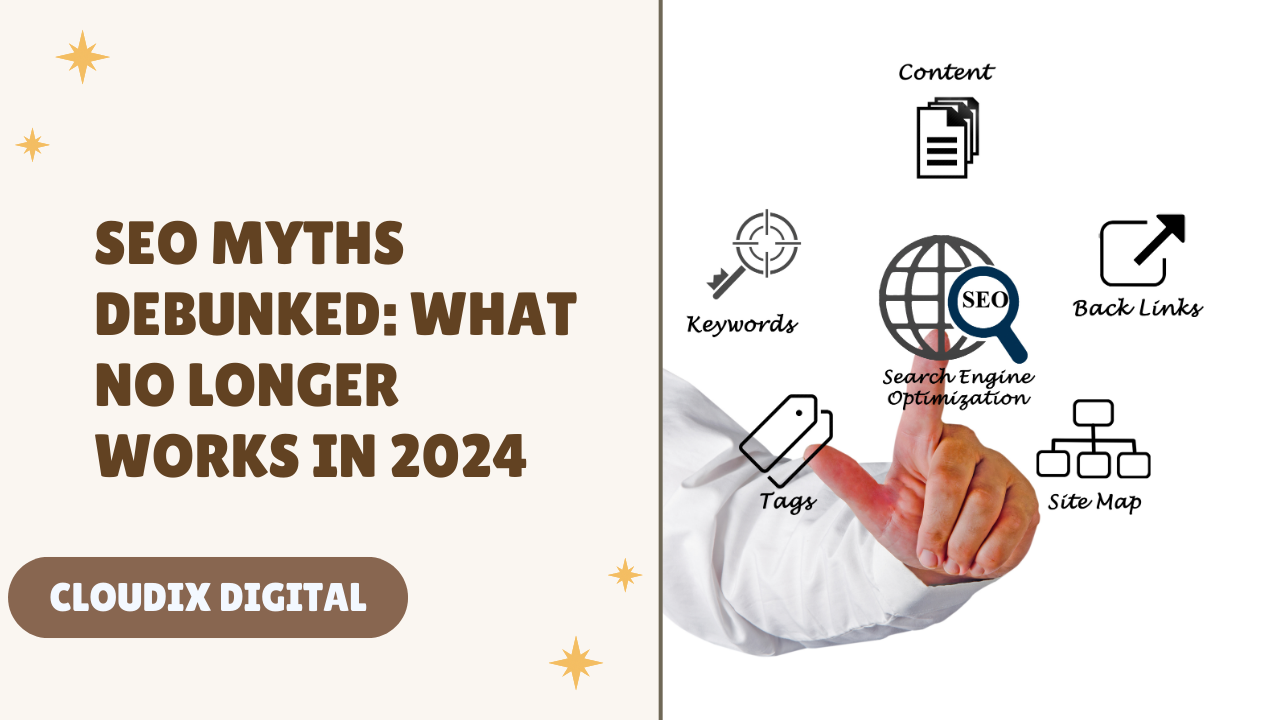In the ever-evolving world of SEO, strategies that were once effective are now considered outdated, and some can even hurt your site’s ranking. As search engines grow more sophisticated, relying on old tactics can lead to diminishing results—or worse, penalties. Here, we’ll debunk common SEO myths and highlight what no longer works in 2024.
1. Keyword Stuffing Still Helps Rankings
- The Myth: Packing as many keywords as possible into your content will improve your search engine rankings.
- The Reality: Modern search engines use AI-driven algorithms that prioritize relevance and readability over sheer keyword density. Keyword stuffing can now result in penalties, with search engines rewarding content that addresses user intent instead.
- What to Do Instead: Focus on creating valuable, high-quality content that naturally incorporates keywords in a way that’s meaningful to readers.

2. Exact Match Domain Names Are a Must
- The Myth: Owning a domain that exactly matches your target keywords gives an automatic ranking boost.
- The Reality: While an exact match domain (EMD) might provide some initial traffic, search engines now prioritize the quality of content and user experience over domain name alone. An EMD with poor-quality content will perform worse than a brand-driven domain with authoritative, helpful content.
- What to Do Instead: Invest in a strong brand identity and provide quality content that engages visitors. A memorable, relevant domain can still help, but it’s not the golden ticket it once was.
3. More Backlinks Automatically Mean Better Rankings
- The Myth: Acquiring as many backlinks as possible will boost your site’s authority and search rankings.
- The Reality: Quality matters far more than quantity when it comes to backlinks. In fact, Google’s algorithm can detect unnatural link-building patterns, penalizing sites with low-quality or spammy backlinks.
- What to Do Instead: Focus on building high-quality, organic backlinks from reputable sources. Aim for natural, contextually relevant links rather than trying to amass backlinks for their own sake.
4. Meta Keywords Still Matter
- The Myth: Adding meta keywords is essential to rank well on search engines.
- The Reality: Google has completely disregarded meta keywords as a ranking factor for years. While some smaller search engines might consider them, it’s no longer a significant factor for SEO.
- What to Do Instead: Concentrate on meta titles and descriptions that accurately represent your content and appeal to users, as these can influence click-through rates.
5. SEO is All About Rankings, Not User Experience
- The Myth: SEO success is solely about ranking as high as possible for keywords, regardless of the user experience.
- The Reality: Google’s algorithm has advanced to prioritize user experience metrics like page speed, mobile-friendliness, and site usability. A poor user experience, even with good rankings, will result in high bounce rates and lower conversions.
- What to Do Instead: Invest in improving site speed, mobile optimization, and easy navigation. Google values user satisfaction, so make it a priority.
6. Content Doesn’t Need to Be Regularly Updated
- The Myth: Once content is published, it doesn’t need to be revisited.
- The Reality: Stagnant content can lose relevance, especially in competitive niches. Google tends to favor fresh, updated content that reflects the latest information and trends.
- What to Do Instead: Regularly audit your content and refresh it to reflect current data, trends, and user intent. Update statistics, add new insights, and refine your keywords for a continued SEO boost.

7. Long Content Always Outperforms Short Content
- The Myth: Long-form content will always rank higher than shorter articles.
- The Reality: While long-form content can perform well when it provides in-depth value, Google’s algorithms prioritize content that meets user intent. If a concise answer is what users are searching for, longer content may not be beneficial.
- What to Do Instead: Aim to meet the user’s intent with content that’s as long as it needs to be—whether that’s a brief summary or a comprehensive guide.
8. Social Media Signals Directly Improve SEO
- The Myth: High engagement on social media directly influences SEO rankings.
- The Reality: While social media can drive traffic, shares and likes themselves aren’t direct ranking factors. However, social media can amplify brand visibility, which indirectly influences SEO through increased traffic and backlinks.
- What to Do Instead: Use social media to expand reach and foster engagement, but focus on the quality of content and SEO fundamentals to maintain rankings.
Final Thoughts: Keep Up with SEO Best Practices
SEO myths can be misleading and lead to wasted efforts. By staying updated on the latest SEO best practices, you can ensure your strategy remains effective in 2024 and beyond.
Ready to upgrade your SEO strategy? At Cloudix Digital, we’re here to help you navigate the latest SEO trends and ensure your website is optimized for success. Contact us today to get started!





